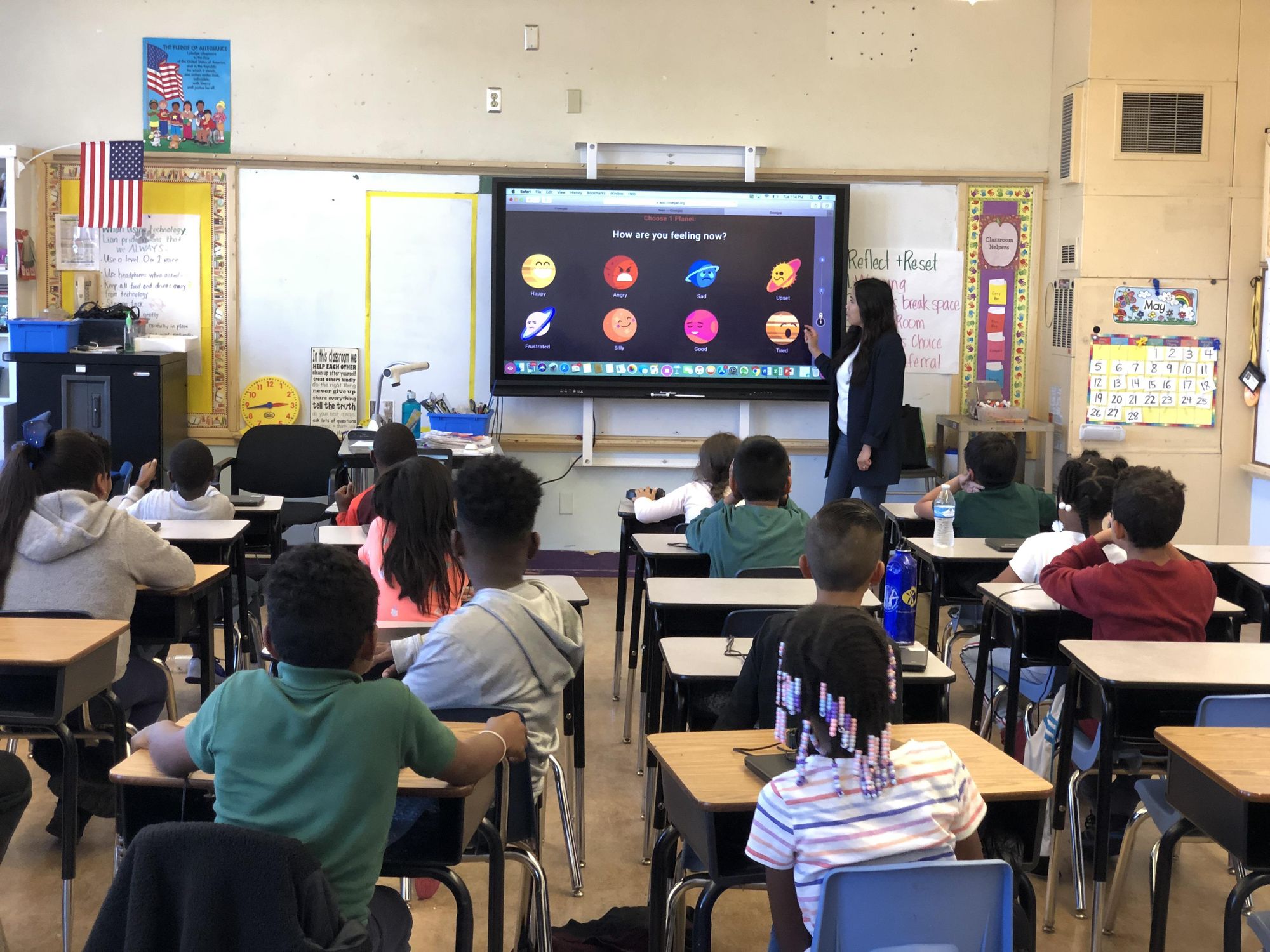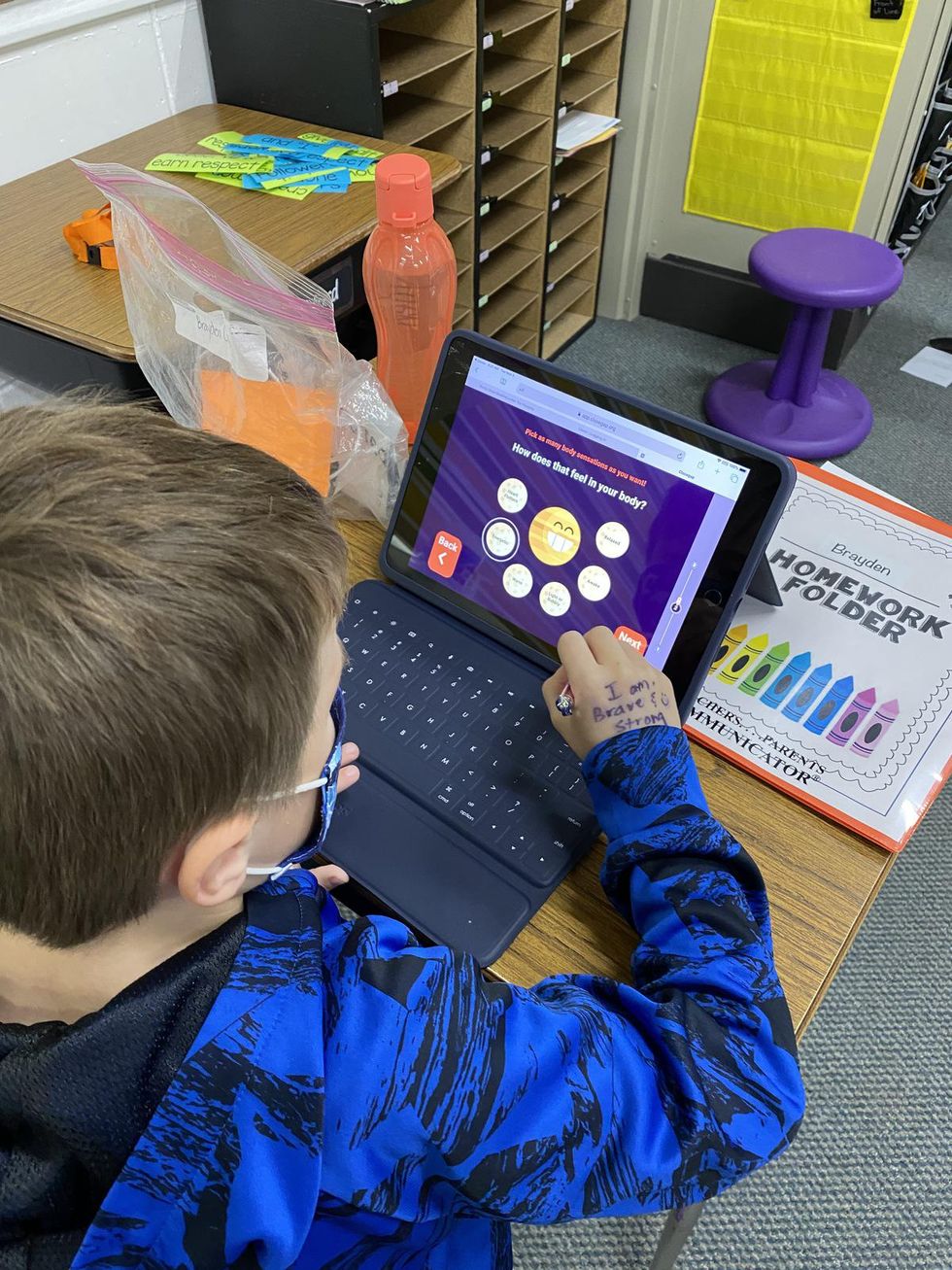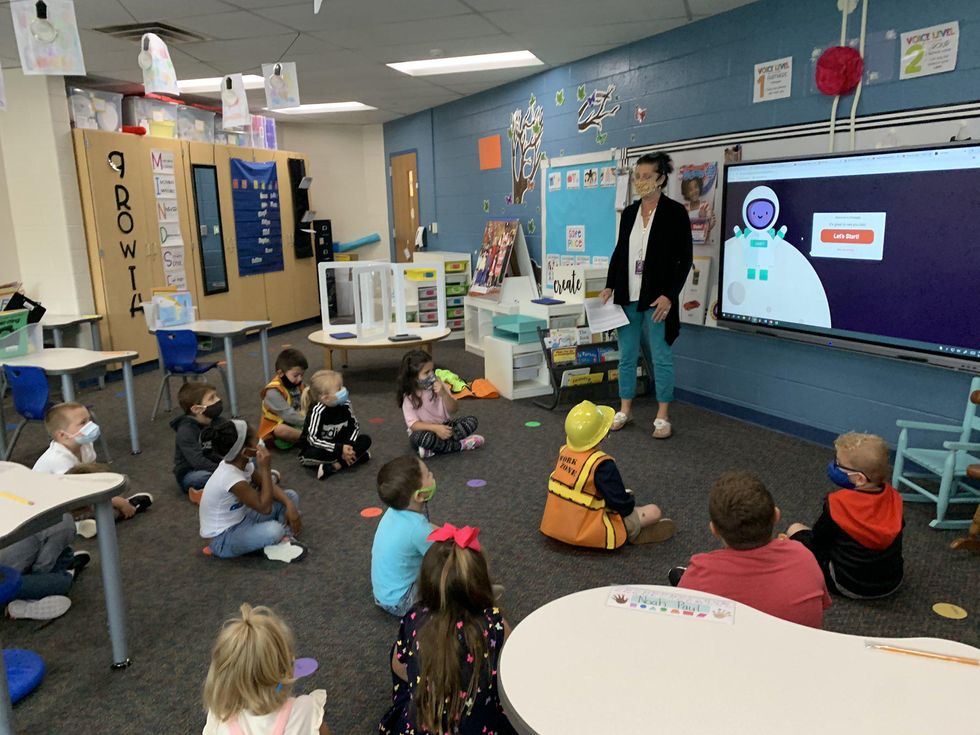How Nonprofit Closegap Aims to Create Mental Health ‘Guardian Angels’ in LA Schools
Favot is an award-winning journalist and adjunct instructor at USC's Annenberg School for Communication and Journalism. She previously was an investigative and data reporter at national education news site The 74 and local news site LA School Report. She's also worked at the Los Angeles Daily News. She was a Livingston Award finalist in 2011 and holds a Master's degree in journalism from Boston University and BA from the University of Windsor in Ontario, Canada.

Rachel Miller, founder and CEO of Closegap, has always been interested in helping kids who did not win the "birth lottery," as she calls it.
She is one of them.
Growing up, her mother had schizoaffective disorder, but did not take medication for it. Miller often stayed at strangers' houses or with family and friends because her mother had a hard time keeping a job. As a result, she often found herself exposed to others who were using drugs.
One night when she was 9, Miller thought she would have to sleep on the streets, but she and her mother received a last-minute motel voucher after standing outside a welfare office for hours.
It was in education that Miller found refuge. She'd often bounce around to several different schools in a year, but often was surrounded by teachers she saw as "guardian angels" who cared about her and her situation.
The support propelled her to attend Los Angeles Pierce College and then USC's Marshall School of Business before getting a master's degree in entrepreneurship at the University of Amsterdam. Drawing on an entrepreneurial spirit, she started a donation platform where people could gift specific items to disadvantaged families. It ultimately failed but something else bloomed.
"I learned so much and actually realized that I don't want to try to eliminate the adversity that kids experience," she said. "I want to optimize the support that they get from the adults around them and teach them the coping skills they need."

She launched Closegap in 2019. The web-based app used by schools lets students check in daily with their emotional well-being by answering questions like: Are you feeling worried or are you feeling like you are worth less than others. The questions are tailored to different age groups and teachers and counselors get results for each student. It tells them whether a child hasn't had breakfast that morning or is experiencing suicidal ideations.
For years, Miller was reluctant to share her story. She had a difficult childhood, one that she often didn't feel comfortable talking about. But she came to understand that it was that pain where her passion for disadvantaged kids comes from.
About 2,100 schools across the U.S. use the Los Angeles-based nonprofit's app, as well as schools in 25 countries. Students have completed about 2.5 million "check-ins."
When COVID hit, the app went from reaching 10,000 students to 140,000 students in two months, Miller said. That number has now reached about 160,000 students.
It's no coincidence. The American Psychological Association's Stress in America 2020 study shows that 43% of Gen Z teens, aged 13 to 17, say the level of stress in their life has increased over the past year. And a UNICEF report on the mental health of children globally found that 1 in 7 adolescents is estimated to live with a diagnosed mental disorder.
School districts across the country, and here in Los Angeles, are hiring school psychologists and psychiatric social workers to address the need.
Closegap targets schools because that's where Miller thought it would be most effective. "Not all families are created equal," she said. Community resources often fall short. She thought Closegap could help students make a connection with at least one adult.
"If we can optimize for that, if every kid had at least one trusted adult, our entire society would look different, that would literally change everything," she said. "That's why Closegap really focuses on that check in and getting them in contact with school counselors and teachers," Miller said.
The app has a free version that's more focused on the connection with an individual student as well as a recently launched paid premium product that provides aggregated data to school districts.

"The idea is to create a safe digital space, where they feel comfy sharing, so it's not just a survey," she said. "It's really this moment where you get to check in with your emotions, your somatic sensations, your energy level and then you get to share if you have any challenges."
There are then activities on the app that students can do if they choose, like deep breathing exercises, progressive muscle relaxation and therapeutic shaking.
When it comes to student data privacy, Miller said it's something she takes seriously and part of the reason she founded the organization as a nonprofit.
So far, the only time Closegap will intervene is when a student reports ideas of self-harm or suicide. They will follow-up with the school to ensure an adult has been in contact with that student. She said all of the students who have reported self-harm or suicide on the app are receiving treatment.
Miller has relied on philanthropic donations to fund the app so far. She has several investors, rather than a single one -- much like a startup backed by venture capitalists would have.
The company is now working on integrating pieces into the app that orient children to the future, rather than living in the here and now. Students who experience trauma are often stuck in their present situation, in survival mode, she said.
"What I want to work on next is really making sure that all students, regardless of the circumstances they find themselves in, have some concept of the future and can start to at least a little bit visualize what their lives might look like after whatever it is they're in," Miller said.
- USC Gets Funds to Create a Contract Tracing App for Students - dot ... ›
- Edtech Curious Cardinals Taps College Students for Mentorship ... ›
- Samaritan App Builds a Support Network for LA's Homeless - dot.LA ›
Favot is an award-winning journalist and adjunct instructor at USC's Annenberg School for Communication and Journalism. She previously was an investigative and data reporter at national education news site The 74 and local news site LA School Report. She's also worked at the Los Angeles Daily News. She was a Livingston Award finalist in 2011 and holds a Master's degree in journalism from Boston University and BA from the University of Windsor in Ontario, Canada.




 Image Source: Skyryse
Image Source: Skyryse
 Image Source: Northwood Space
Image Source: Northwood Space